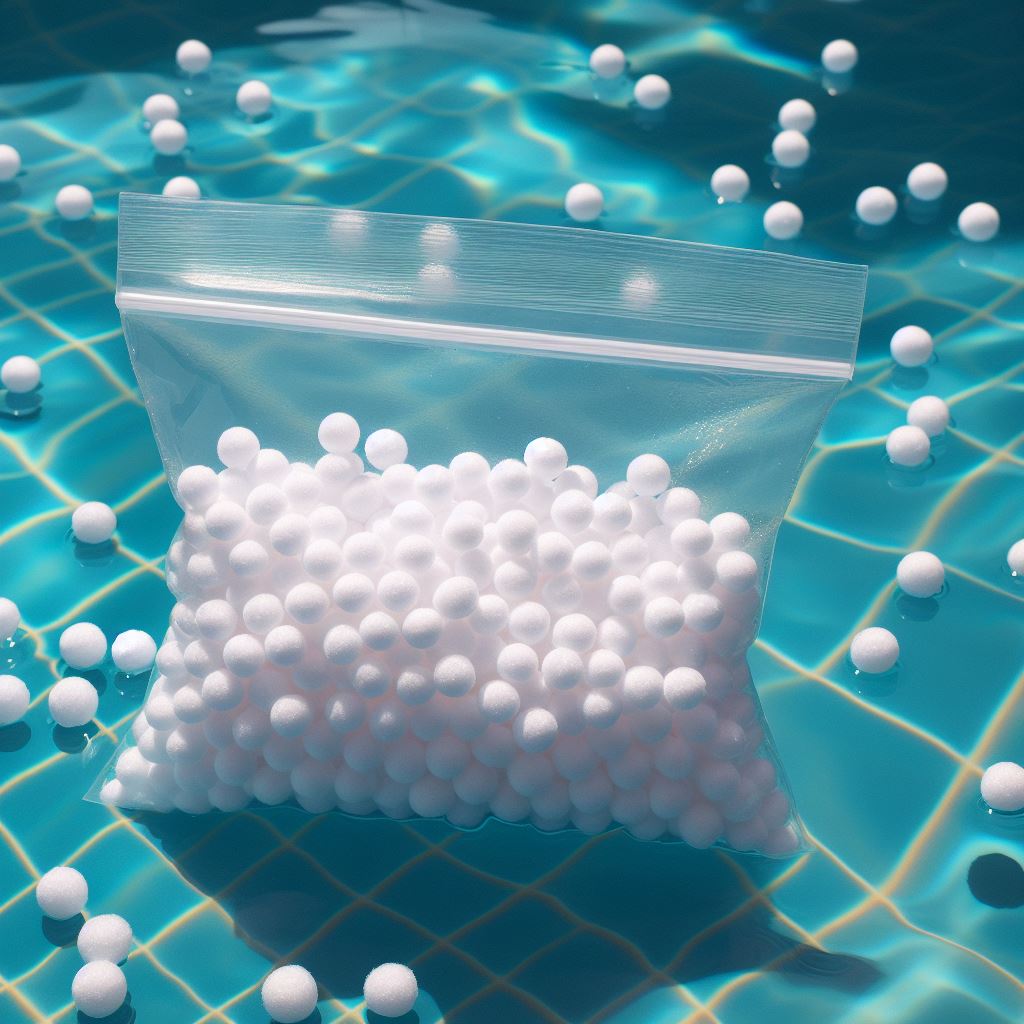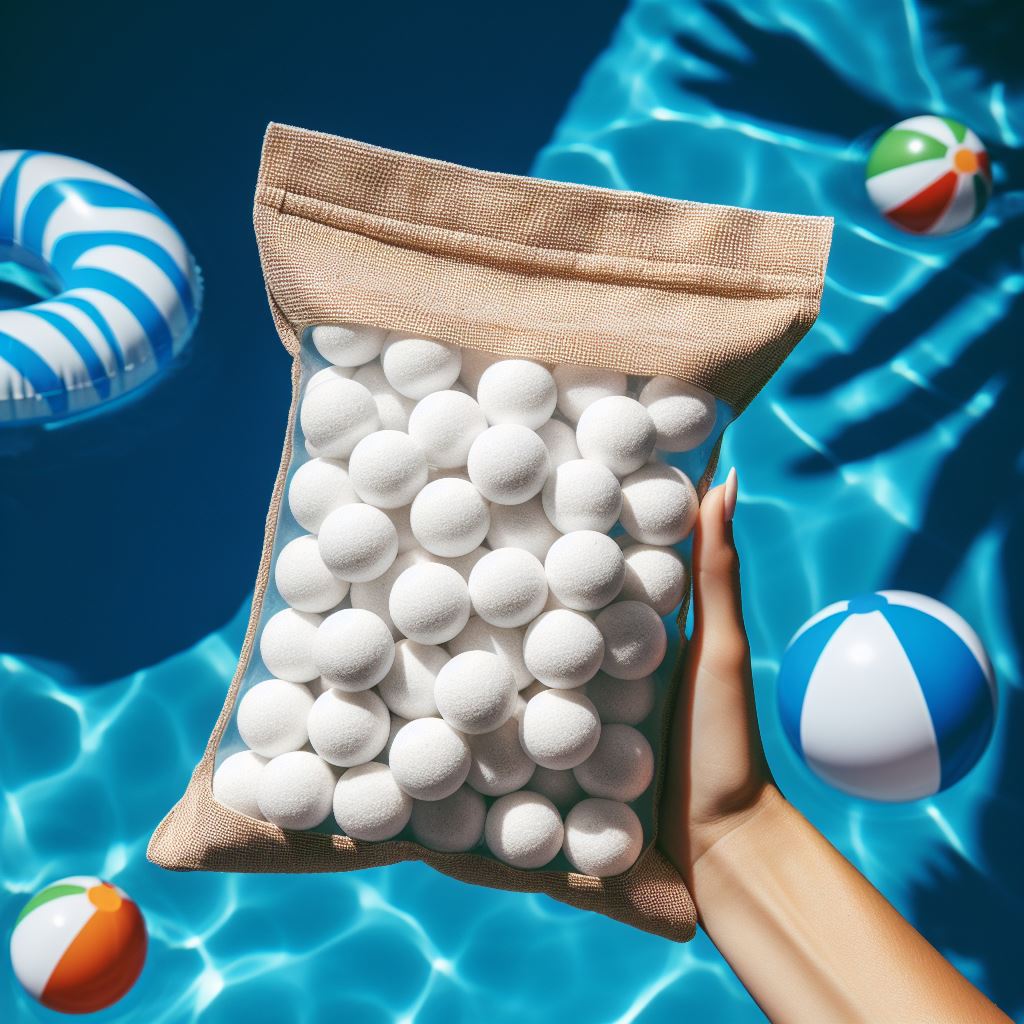Are you troubled by the noise coming from your pool pump? Whether it’s a buzzing, screeching, or gurgling sound, these noises are not only annoying but may also indicate a problem with the pump. Before calling a professional, there are several steps you can take to troubleshoot and solve these issues yourself. Replacing the sand with pool pump filter balls is also an effective solution. Let’s explore how to deal with these noise problems.

Causes and Solutions for Buzzing Noises
Reset the Circuit Breaker
If your pump is making a buzzing noise, check the circuit breaker first. Locate the breaker controlling the pump, turn it off, and then turn it back on. Sometimes, the issue is simply a tripped breaker.
Check for a Clogged Impeller
The impeller is the only moving part in the pump, responsible for pushing water into the filter. If it gets stuck, the motor can jam, causing a buzzing noise. Turn off the circuit breaker, remove the pump basket, and manually spin the impeller to see if there are any obstructions. You can use a screwdriver or a bent metal hanger to help clear any debris.
Give the Pump a Tap
Sometimes, giving the pump a gentle tap can solve the buzzing problem. Use a rubber mallet or a rubber-soled shoe to tap the motor while it’s trying to start. Ensure that the tool you use has a rubber padding to avoid damaging the pump. This method might indicate that you need to replace the motor soon, but it can be a quick fix.
Causes and Solutions for Screeching Noises
If your pump is making a screeching noise, it usually means there’s an issue with the motor bearings. The bearings might be corroded due to overheating or chlorine water leaking into the motor’s electrical components. Unfortunately, this often requires replacing the motor bearings or the entire pump.
Causes and Solutions for Gurgling Noises
A gurgling noise from the pump typically indicates insufficient water flow. Check the pool water level to ensure it reaches at least halfway up the skimmer. If the water level is too low, use a garden hose to add water and start the pump. Additionally, inspect the pipes and connections to ensure no air is entering the system, which can also cause gurgling sounds.
The Relationship Between Filter Sand and Noise
Problems with Filter Sand
Filter sand is a traditional pool filter medium, but over time, it can present the following issues:
- Clumping: Filter sand can clump together, restricting water flow.
- Debris Accumulation: Over time, debris accumulates in the sand, causing blockages.
- Wear and Tear: The sand can wear down, increasing friction and generating noise.
These issues can cause noise during pump operation. If your filter sand has been in use for a long time without proper maintenance or replacement, it could be the source of the noise.
Advantages of Filter Balls
pool pump filter balls are a new type of filter medium that offer several advantages over traditional filter sand:
- Higher Filtration Efficiency: Filter balls can capture finer particles, keeping the water clearer.
- Easier Maintenance: Filter balls are less prone to clumping and are easier to clean and replace.
- Noise Reduction: The soft texture of filter balls reduces friction and vibration, effectively minimizing noise.
Replacing Filter Sand with Filter Balls
If you suspect that filter sand is the main source of noise in your pool pump, replacing it with pool pump filter balls can be an effective solution. Here are the steps to do it:
Turn Off the Pump
Ensure safety by turning off the pump power.
Drain the Filter Tank
Drain the water from the filter tank to prepare for the filter media replacement.
Remove Old Filter Sand
Empty the filter tank of the old filter sand, ensuring all clumps and debris are thoroughly removed.
Clean the Filter Tank
Before adding new filter media, thoroughly clean the inside of the filter tank to remove any residual dirt and grime.
Add Filter Balls
Add the new pool pump filter balls to the filter tank, ensuring they are evenly distributed.
Restart the Pump
Restart the pump and check if it operates normally, paying attention to any reduction in noise.
Recommended: TBPFilter High-Efficiency Pool Filter Balls
If you’re struggling with noise from your pool pump, why not try our TBPFilter High-Efficiency Pool Pump Filter Balls? Not only do they improve water quality, but they also effectively reduce noise. Our filter balls offer superior filtration, capturing finer particles; they’re easy to maintain, less prone to clumping, and simpler to clean and replace. Most importantly, their soft texture minimizes friction and vibration, significantly reducing noise. Act now and let TBPFilter High-Efficiency Pool Pump Filter Balls transform your pool experience, making it quieter and more enjoyable!

